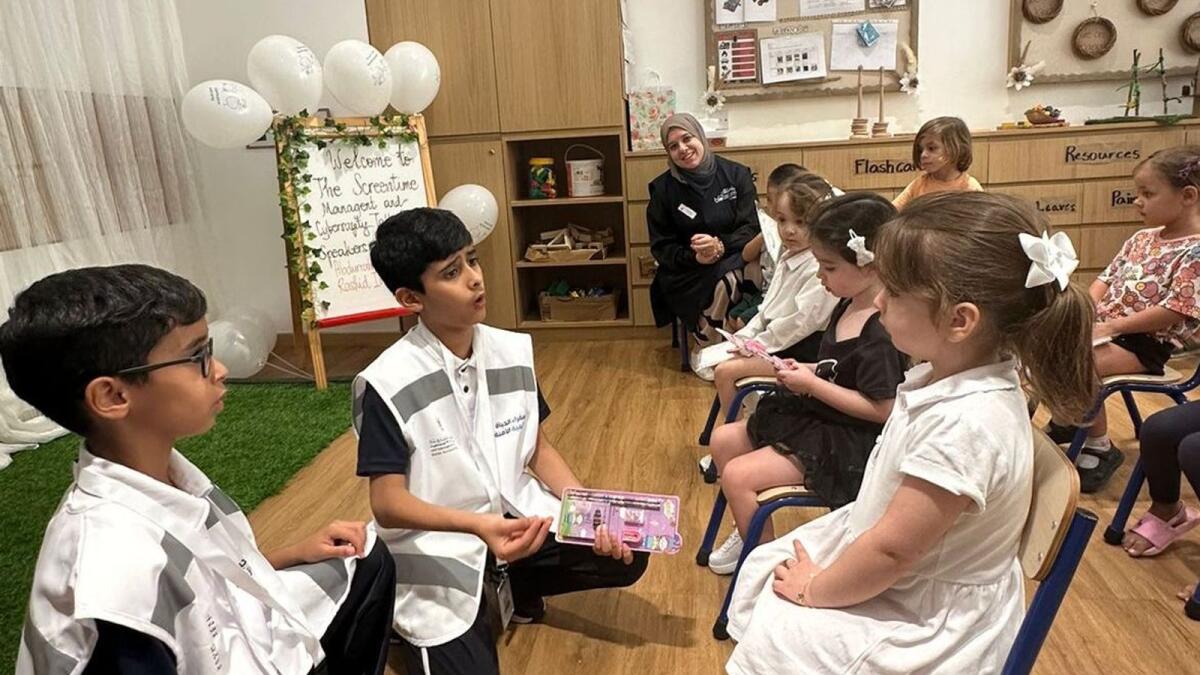Children’s safety on the internet has become a growing concern, prompting government agencies and educational institutes to implement student-led safety programs. One such initiative is the Digital Safety Ambassadors program in Sharjah, where children are trained to educate their peers on safe internet practices. Abdurrahman Ali Al Mulla, a nine-year-old Digital Safety Ambassador, has conducted several sessions on safe internet browsing for students in Sharjah. He emphasizes the importance of not clicking on suspicious links, using strong passwords, and addressing bullying online.
Abdurrahman’s training has equipped him to tailor his sessions based on the age of the audience. He recalls a session where a young boy confided in him about being bullied for wearing glasses. By providing guidance on how to respond to bullies, Abdurrahman aims to empower children to deal with such situations effectively. Peer-led programs like the Digital Safety Ambassadors initiative are crucial in engaging children and influencing them positively. Noona Nafousi, founder of Neo Noor, highlights the impact of peer-led initiatives in mental health support and community building.
Incorporating mental health ambassadors and anti-bullying initiatives within schools has become a common practice to address online bullying and promote digital well-being. Deepika Thapar Singh, CEO and Principal of Credence High School, emphasizes the need for sensitization sessions to educate students on standing up against bullying and reporting harassment. With the rise of social media, online bullying has taken various forms, including verbal and social bullying, leading to emotional and psychological harm. Thapar Singh stresses the importance of creating a safe and supportive environment for students to combat cyberbullying effectively.
The significance of student-led safety programs in promoting online safety cannot be understated. By empowering children to educate their peers on safe internet practices, initiatives like the Digital Safety Ambassadors program play a crucial role in fostering a culture of digital well-being in educational settings. Through personalized sessions and peer support, young ambassadors like Abdurrahman aim to instill resilience and confidence in their peers, enabling them to navigate the online world securely. Collaborative efforts between government agencies, educational institutes, and mental health professionals are essential in creating a safe and inclusive online environment for children.
As internet usage among children continues to rise, the need for proactive measures to address online safety concerns becomes increasingly important. By engaging students as ambassadors for digital safety and mental well-being, schools can empower young individuals to become advocates for positive online behavior. Through targeted initiatives and support mechanisms, educators and parents can work together to equip children with the necessary skills and knowledge to protect themselves from online threats and cyberbullying. By fostering a culture of awareness and support, children can navigate the digital landscape with confidence and resilience, ensuring their safety and well-being in the virtual world.










